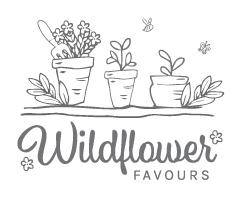Wildflower Favours supports several conservation charities, one of which is the British Hedgehog Preservation Society (BHPS). BHPS is dedicated to helping and protecting our native hedgehog species (Erinaceus europaeus) through campaigns, education and awareness-raising. The money donated through the sale of wildflower seeds helps support research, funds projects like HogWatch Scotland, Hedgehog Street (in partnership with the People’s Trust for Endangered Species) and Hedgehog Friendly Campus. The latter encourages schools and universities to adopt hedgehog-friendly practices in their grounds. BHPS also maintains a directory of independent hedgehog rehabilitators all around the country and provide a helpline to direct members of the public to the nearest source of help. Dedicated independent carers take in hedgehogs that are injured, sick or orphaned and rehabilitate them so they can hopefully be released fit and well back to where they were found.
Hedgehogs are consistently voted amongst Britain’s favourite wild animals and yet their numbers have been declining. The decline has got so bad that they were recently classified as “Vulnerable to Extinction”. The problem is that hedgehogs are finding it harder to find good places to live and enough food to eat. And, if hedgehogs are in trouble, it raises concerns about other species (including humans) and the environment in general. If we take action to improve things for hedgehogs, we will help lots of other wildlife too.
Thankfully it’s not all doom and gloom and there are lots of easy ways to help, especially for gardeners who like to grow wildflowers. Here are the BHPS’s top tips for helping the hedgehogs in your garden.
Top Tips for Helping Hedgehogs in Your Garden

- Create 13 cm x 13 cm square gap in the bottom of your boundary fence as a ‘hedgehog highway’ (more than one if you like!) and ask your neighbours to do the same. Then plot them on the BIG Hedgehog Map at www.bighedgehogmap.org.
- Offer some meaty cat, dog or hedgehog food, or some cat biscuits alongside a bowl of water at night.
- Make your garden wildlife friendly – stop using slug pellets, pesticides or poisons and leave one corner or edge a bit wild. Get planting those wildflower seeds to provide not only a beautiful splash of colour, but a feast for insects and, in turn, hedgehogs.
- Create a log pile in your garden, this will provide natural shelter and food – and then don’t disturb it. Or consider putting out a hedgehog house – you can make your own or buy a ready-made one.
- Ask everyone you know to check for hedgehogs before strimming or mowing. Check compost heaps before sticking a big fork in there too!
- If you’ve got a pond, make sure hedgehogs can get out if they fall in. Ideally, create sloping edges, or, failing that, provide ramps or steps up.
Hedgehog First Aid
If you see any hedgehogs out during the day looking lethargic, wobbly, injured or covered in flies, they need urgent help. For first aid, get them indoors into a big deep box. Keep them somewhere calm and quiet until you can get help. Give them an old towel or similar and ideally a wrapped warm hot water bottle (which you will need to keep topped up with warm water so it doesn’t go cold). You need enough space in the box so that they have room to get off the water bottle if they get too hot. Offer a small amount of meaty cat or dog or hedgehog food and water (don’t force feed). Then call the British Hedgehog Preservation Society on 01584 890801 for contact details for your nearest hedgehog rescue and get the hedgehog seen as a matter of urgency.
If you’re interested in hedgehogs, why not become a Hedgehog Champion? Hedgehog Street is run by the British Hedgehog Preservation Society in partnership with the People’s Trust for Endangered Species. Just go to https://www.hedgehogstreet.org/ and sign up – it’s fun and free to join!

(All images courtesy of British Hedgehog Preservation Society).



